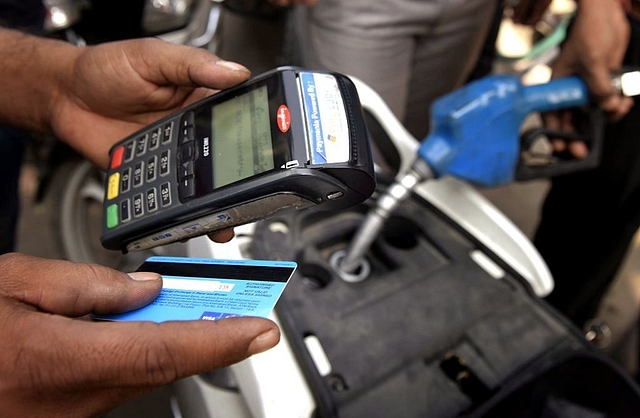
Petrol, Diesel Prices Rise Further; RBI Governor Shaktikanta Das Asks Govt To Decrease Tax On Fuel To Keep Rates Low
After a brief pause on the rising trend, the petrol and diesel prices in Delhi touched record high again today.
The price of petrol increased by 25 paise, and diesel rates jumped up by 35 paise. This increased the retail rate of the fossil fuels which differ from state to state depending on the incidence of local sales tax or VAT and freight charges.
In Delhi, petrol price reached Rs 90.83 per litre while diesel climbed to Rs 81.32 a litre.
The fuel prices are rising because of recovery in crude oil prices as the world comes out of the shadows of the coronavirus pandemic. Over this are the central and state taxes which were increased last year to supplement the revenue of the government as other sources dried up.
The hike in taxes kept fuel prices up in India even though crude oil prices had crashed and stayed low for much of 2020.
Reportedly, in Delhi, 60 per cent of what a customer pays at the gas station goes as excise duty and value-added tax, only 40 per cent is the price of crude oil.
The share of state tax on petrol can be seen in the following table:
While people didn’t get the benefit of the low crude prices last year, now they are bearing the brunt of high prices thanks to high taxes. This is resulting in widespread anger against the governments.
Meanwhile, Reserve Bank of India governor Shaktikanta Das has called for reduced indirect taxes on petrol and diesel to contain the fuel prices at a reasonable level.
"CPI inflation excluding food and fuel remained elevated at 5.5% in December, due to inflationary impact of rising crude oil prices and high indirect tax rates on petrol and diesel, and pick-up in inflation of key goods and services, particularly in transport and health categories," Das was quoted as saying by Livemint.
"Proactive supply-side measures, particularly in enabling a calibrated unwinding of high indirect taxes on petrol and diesel – in a co-ordinated manner by centre and states – are critical to contain a further build-up of cost-pressures in the economy," he added.